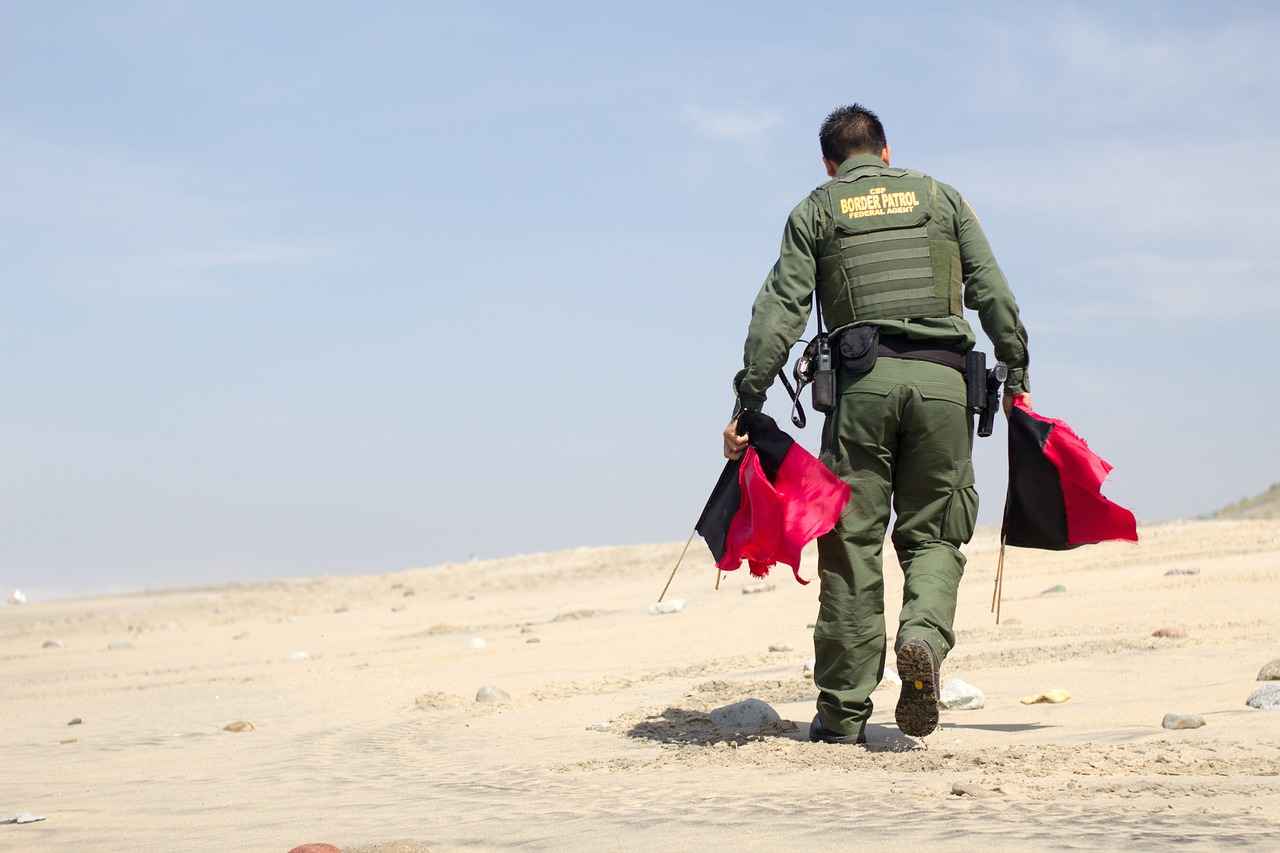This article explores the impact of immigration policies on Indian Americans in New York, examining the economic, social, and cultural dimensions of their experiences and challenges. The Indian American community in New York is one of the fastest-growing immigrant populations, contributing significantly to the city’s economy and cultural diversity. However, the complexities of immigration policies often pose significant challenges and barriers for this community.
The Historical Context of Indian Immigration to New York
Understanding the historical waves of Indian immigration helps contextualize the current challenges faced by Indian Americans in New York. The first significant wave of Indian immigrants arrived in the early 20th century, primarily consisting of laborers and students. Over the decades, subsequent waves brought skilled professionals, particularly in technology and healthcare. These immigrants have made substantial contributions to New York’s economy, yet they also faced discrimination and legal hurdles that continue to affect their descendants today.
Current Immigration Policies Affecting Indian Americans
This section delves into the specific immigration policies that impact Indian Americans, including visa regulations, green card processes, and recent legislative changes. The evolving landscape of immigration laws can create uncertainty and anxiety for many families, as they navigate the complexities of maintaining their legal status in the U.S.
Visa Regulations and Their Implications
Visa regulations are crucial for Indian professionals seeking opportunities in the U.S. The H-1B visa, designed for specialty occupations, is a primary pathway for many Indian immigrants. However, the application process is highly competitive, with a limited number of visas available each year. This subsection discusses the requirements and implications for Indian immigrants in New York, highlighting the challenges they face in securing employment.
Challenges in the H-1B Visa Process
The H-1B visa process presents numerous challenges, including high competition and lengthy processing times. Indian applicants often encounter hurdles such as increased scrutiny of applications and the need for employer sponsorship. These challenges can lead to delays in employment and uncertainty about future job prospects.
Alternatives to the H-1B Visa
For those facing difficulties with the H-1B visa, alternative visa options exist, such as the L-1 visa for intra-company transferees and the O-1 visa for individuals with extraordinary abilities. This section provides insights into other pathways available to Indian immigrants in New York, emphasizing the importance of exploring all available options to secure legal status.
Green Card Process and Delays
The green card process is often fraught with delays and complications, particularly for Indian Americans, who may face long waiting periods due to country-specific quotas. This subsection outlines the challenges Indian Americans face in securing permanent residency in New York, including the impact of changing immigration policies on their applications.
The Economic Impact of Immigration Policies
Immigration policies have significant economic implications for Indian Americans, influencing job opportunities, entrepreneurship, and overall economic contributions to New York. Many Indian Americans work in high-demand sectors such as technology and healthcare, where their skills are essential for maintaining the city’s economic growth.
Employment Opportunities for Indian Americans
This section analyzes how immigration policies shape employment opportunities for Indian Americans, particularly in tech and healthcare sectors. The demand for skilled professionals in these industries often contrasts with the restrictive nature of immigration policies, creating a complex environment for job seekers.
The Role of Indian Entrepreneurs in New York
Indian entrepreneurs have made substantial contributions to New York’s economy, establishing businesses that create jobs and foster innovation. This part explores how immigration policies impact their ability to start and grow businesses, including access to funding and resources.
Social and Cultural Challenges Faced by Indian Americans
Beyond economic factors, immigration policies also affect the social and cultural integration of Indian Americans in New York, influencing their community dynamics and identity. The ability to maintain cultural traditions while integrating into the broader society presents unique challenges.
Community Support Systems
Strong community support systems play a vital role in helping Indian Americans navigate challenges. This section discusses the networks available to them in New York, including cultural organizations, legal aid services, and mentorship programs that provide essential support.
Cultural Integration and Identity
Cultural integration is essential for Indian Americans in New York. This part examines how immigration policies influence their identity and sense of belonging, highlighting the importance of community engagement and participation in cultural events.
The Future of Indian Americans in New York
Looking ahead, the future of Indian Americans in New York is closely tied to immigration policy changes. This section speculates on possible developments and their implications for the community, emphasizing the need for advocacy and awareness to ensure a supportive environment for future generations.
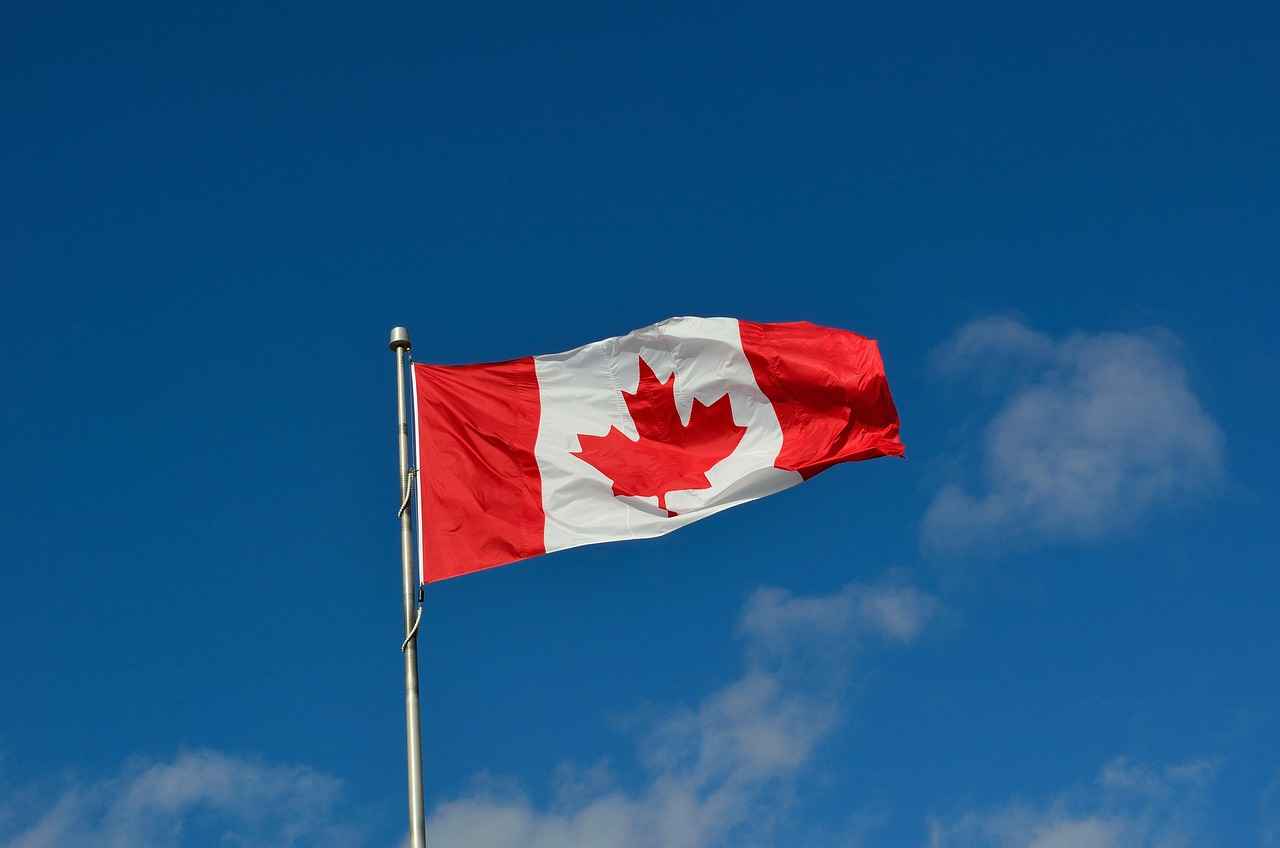
The Historical Context of Indian Immigration to New York
Understanding the historical waves of Indian immigration is essential to contextualize the current challenges faced by Indian Americans in New York. The journey of Indian immigrants has been marked by various phases, each contributing uniquely to the rich tapestry of New York’s cultural and economic landscape.
The first significant wave of Indian immigration to the United States occurred in the early 20th century, primarily driven by labor needs. Many of these early immigrants were Sikh farmers from the Punjab region, who settled in California and eventually made their way to New York. Their arrival marked the beginning of a long journey of adaptation and resilience.
During the mid-20th century, changes in U.S. immigration laws, particularly the Immigration and Nationality Act of 1965, opened the doors for a new wave of Indian immigrants. This legislation abolished the national origins quota system, allowing skilled professionals, particularly in fields like medicine, engineering, and technology, to migrate to the U.S. in larger numbers. Consequently, New York became a hub for these highly educated individuals, significantly contributing to the state’s workforce and economy.
Over the decades, Indian Americans have faced a myriad of challenges, including cultural assimilation and discrimination. Despite these hurdles, they have made significant contributions to various sectors, such as technology, healthcare, and academia. The establishment of vibrant communities in neighborhoods like Jackson Heights and Flushing reflects their resilience and ability to maintain cultural ties while integrating into American society.
Today, the Indian American community in New York is one of the fastest-growing ethnic groups. However, they continue to grapple with issues related to immigration policies that affect their status and opportunities. Understanding these historical contexts not only highlights their contributions but also underscores the ongoing struggles they face in navigating the complexities of modern immigration laws.
In summary, the historical waves of Indian immigration to New York provide a crucial backdrop for understanding the current challenges and contributions of Indian Americans. Their journey is a testament to resilience and adaptability, as they continue to shape the cultural and economic landscape of New York.

Current Immigration Policies Affecting Indian Americans
This section explores the intricate web of immigration policies that significantly impact Indian Americans, particularly in the context of New York. As one of the largest immigrant groups in the United States, Indian Americans face unique challenges and opportunities shaped by these policies. Understanding the nuances of visa regulations, the green card process, and recent legislative changes is crucial for navigating their immigration journey.
Visa Regulations and Their Implications
Visa regulations serve as the gateway for many Indian professionals seeking employment in the United States. The H-1B visa is a prominent option, designed for skilled workers in specialty occupations. This visa allows employers to temporarily employ foreign workers in positions that require theoretical or technical expertise. However, the process is highly competitive, with a limited number of visas available each year. Indian applicants, who constitute a significant portion of H-1B visa holders, often face challenges such as lengthy processing times and stringent requirements.
Challenges in the H-1B Visa Process
The H-1B visa process is fraught with obstacles. High competition for available slots leads to uncertainty and anxiety among applicants. Additionally, changes in administration policies can affect the application process, leading to further complications. For instance, increased scrutiny of applications has resulted in more requests for evidence (RFEs), delaying the process and creating additional stress for applicants and their employers.
Alternatives to the H-1B Visa
For those who encounter difficulties with the H-1B visa, there are alternative pathways available. Options such as the L-1 visa for intra-company transferees or the O-1 visa for individuals with extraordinary ability can provide viable alternatives. Each visa category has its own set of requirements, and understanding these can help Indian immigrants identify the best pathway for their circumstances.
The Green Card Process and Delays
The journey to obtaining a green card can be particularly challenging for Indian Americans. The process often involves a lengthy wait due to high demand and limited availability of visas in certain categories. Indian nationals face one of the longest waiting times for employment-based green cards, which can extend over several years. This delay can have significant implications for individuals and families, affecting their long-term plans and stability in the U.S.
Impact of Recent Legislative Changes
Recent legislative changes have also influenced the immigration landscape for Indian Americans. Proposals aimed at reforming the immigration system have sparked discussions about increasing the number of available green cards and streamlining the application process. While some changes have been welcomed, uncertainty remains regarding the future of immigration policies, leaving many Indian Americans in a state of apprehension about their status and opportunities.
In summary, the current immigration policies affecting Indian Americans are complex and multifaceted. From the intricacies of visa regulations to the challenges of the green card process, understanding these elements is essential for navigating the immigration landscape. As policies continue to evolve, staying informed and proactive will be crucial for Indian Americans seeking to thrive in New York and beyond.
Visa Regulations and Their Implications
Visa regulations play a pivotal role in shaping the professional landscape for Indian immigrants in the United States, particularly in bustling metropolitan areas like New York. Among the various visa categories, the H-1B visa stands out as a crucial pathway for skilled professionals, allowing them to work in specialized occupations. Understanding the intricacies of this visa is essential for Indian professionals aiming to establish their careers in the U.S.
The H-1B visa is designed for foreign workers in specialty occupations, which generally require a bachelor’s degree or higher. For Indian professionals, this visa represents a significant opportunity to access the American job market, especially in sectors like technology, engineering, and healthcare. However, the application process is highly competitive and subject to strict regulations. Each year, the U.S. government sets a cap on the number of H-1B visas issued, leading to a lottery system that can leave many qualified applicants without options.
- Eligibility Requirements: To qualify for an H-1B visa, applicants must have a job offer from a U.S. employer willing to sponsor them. Additionally, they must possess the necessary educational qualifications and relevant work experience.
- Employer Obligations: Employers must demonstrate that they will pay the prevailing wage for the position and that hiring a foreign worker will not negatively impact the working conditions of U.S. workers.
The implications of these regulations extend beyond individual applicants. For Indian immigrants in New York, the H-1B visa can significantly influence their economic stability and professional growth. Many Indian professionals contribute to the thriving tech industry in New York, driving innovation and economic development. However, the challenges associated with the H-1B visa process can create barriers to entry, limiting the pool of talent available to employers.
In addition to the competitive nature of the H-1B visa, applicants often face long processing times and bureaucratic hurdles. This can lead to uncertainty and anxiety for those seeking to relocate to the U.S. for work. Furthermore, the potential for visa denials or delays can disrupt career plans and create financial strain.
For many Indian professionals, the H-1B visa is not just a work permit; it is a gateway to a brighter future. It offers the possibility of transitioning to permanent residency through the green card process, which is a significant incentive for many immigrants. However, the complexities of immigration policies and the evolving landscape of U.S. visa regulations can make this pathway challenging to navigate.
In conclusion, understanding the H-1B visa and its implications is essential for Indian professionals seeking opportunities in New York. As immigration policies continue to evolve, staying informed about the latest regulations and requirements will be crucial for those aspiring to build their careers in the United States.
Challenges in the H-1B Visa Process
The H-1B visa process is a critical pathway for many Indian professionals seeking employment opportunities in the United States. However, this process is fraught with numerous challenges that can create significant barriers for applicants. This section explores these hurdles, including high competition, lengthy processing times, and the emotional toll they can take on Indian professionals.
- High Competition for H-1B Visas: Each year, the demand for H-1B visas far exceeds the supply. The U.S. government caps the number of H-1B visas issued annually, leading to a lottery system that selects applicants randomly. This high level of competition means that many qualified candidates may not secure a visa, leaving them with limited options for employment in the U.S.
- Lengthy Processing Times: The processing times for H-1B visas can be extensive, often taking several months. This delay can jeopardize job offers, as employers may seek to fill positions quickly. For Indian professionals, this uncertainty can lead to frustration and anxiety, impacting their career trajectories.
- Complex Application Requirements: The H-1B visa application process involves intricate documentation and compliance with specific regulations. Applicants must provide evidence of their qualifications, job offers, and employer sponsorship. Navigating this complex landscape can be daunting, especially for those unfamiliar with U.S. immigration law.
- Changing Immigration Policies: Immigration policies in the U.S. are subject to change, often influenced by political climates. Recent shifts in policy can create additional hurdles for H-1B applicants, as rules about eligibility and documentation requirements may be altered, further complicating the application process.
- Impact on Mental Health: The stress associated with the H-1B visa process can take a toll on mental health. Uncertainty about job security and the future can lead to feelings of anxiety and isolation among Indian professionals. The pressure to succeed in a highly competitive environment can exacerbate these feelings.
The challenges faced by Indian professionals in the H-1B visa process are profound and multifaceted. The combination of high competition, lengthy processing times, and the emotional burden associated with these hurdles can significantly impact their professional lives. Understanding these challenges is essential for addressing the broader implications of immigration policies on Indian professionals in New York and beyond.
Alternatives to the H-1B Visa
For many Indian immigrants in New York, the H-1B visa serves as a primary pathway to employment in the United States. However, the complexities and challenges associated with this visa can lead individuals to explore alternative visa options. Understanding these alternatives is crucial for those seeking to establish their lives and careers in New York.
One of the most viable alternatives is the O-1 visa, designed for individuals with extraordinary ability in their field. This visa is particularly beneficial for professionals in the arts, sciences, business, or athletics who can demonstrate a high level of achievement. Unlike the H-1B visa, which is subject to an annual cap, the O-1 visa does not have such limitations, making it a favorable option for qualified applicants.
Another alternative is the L-1 visa, which allows companies to transfer employees from foreign offices to their U.S. branches. This visa is particularly advantageous for Indian professionals working for multinational companies, as it can facilitate a smoother transition to the U.S. workforce. The L-1 visa comes in two categories: L-1A for managers and executives, and L-1B for employees with specialized knowledge, providing flexibility based on the applicant’s role.
- TN Visa: Under the USMCA (formerly NAFTA), Canadian and Mexican citizens can apply for the TN visa, which is a non-immigrant visa allowing professionals to work in the U.S. While this option is not available for Indian nationals, it highlights the importance of exploring bilateral agreements that may benefit specific groups.
- J-1 Visa: This visa is for exchange visitors participating in work-and-study-based programs. It can be a pathway for Indian students and professionals looking to gain experience in the U.S. before transitioning to other visa categories.
- EB-2 and EB-3 Visas: For those seeking permanent residency, the EB-2 and EB-3 employment-based immigrant visas are options worth considering. These visas cater to professionals with advanced degrees (EB-2) or skilled workers (EB-3) and can lead to a green card.
It is essential for applicants to assess their qualifications and career goals when considering these alternatives. Each visa category has its own set of requirements, application processes, and timelines, which can significantly affect an immigrant’s ability to work and live in New York. Consulting with an immigration attorney can provide personalized guidance and help navigate these complexities.
In addition to individual visa options, Indian immigrants should also explore community resources and support networks in New York. Organizations and advocacy groups often provide valuable information and assistance regarding visa applications, legal advice, and employment opportunities. Engaging with these resources can enhance the chances of successfully securing a suitable visa alternative.
In conclusion, while the H-1B visa remains a popular choice for many Indian professionals, it is crucial to recognize and explore the various alternatives available. By understanding the different visa options and leveraging community support, Indian immigrants can effectively pursue their aspirations in New York.
Green Card Process and Delays
The journey to obtaining a green card is often a challenging and complex process for many Indian Americans residing in New York. This section highlights the various **obstacles** and **delays** that can hinder the path to permanent residency, impacting both individuals and families.
- Lengthy Processing Times: One of the most significant challenges faced by Indian Americans in the green card process is the lengthy processing times. The backlog for employment-based green cards, particularly for individuals from India, can extend for years, leading to uncertainty and frustration.
- Complicated Paperwork: The green card application requires extensive documentation, including proof of employment, financial stability, and personal background checks. Navigating this paperwork can be daunting, especially for those unfamiliar with the legal jargon and requirements.
- Changing Immigration Policies: Frequent changes in immigration laws and policies can create confusion and additional hurdles for applicants. Indian Americans often find themselves needing to stay updated on these changes to ensure their applications remain compliant.
- Visa Quotas: The U.S. has established annual quotas for green cards based on country of origin. Unfortunately, due to the high number of applicants from India, many face long waiting periods, sometimes exceeding a decade, before they can secure a green card.
The emotional toll of these delays cannot be understated. Many families are left in a state of limbo, unable to plan for the future or make significant life decisions. This uncertainty can lead to increased anxiety and stress, as individuals worry about job security and family stability.
Moreover, the ramifications of these delays extend beyond personal challenges. The inability to secure permanent residency can hinder the professional growth of Indian Americans in New York. Many skilled workers find themselves unable to pursue better job opportunities or start their own businesses due to their temporary visa status. This not only affects their individual careers but also impacts the broader economy, as the contributions of these professionals are delayed.
In addition to the practical challenges, there is also a significant social impact. The prolonged wait for green cards can disrupt family unity, as many applicants may have family members waiting in India or elsewhere. The emotional strain of separation can lead to feelings of isolation within the community.
To navigate these challenges, many Indian Americans turn to community organizations and legal experts for support. These resources can provide guidance on the application process, help individuals understand their rights, and offer assistance in gathering the necessary documentation.
In conclusion, the green card process for Indian Americans in New York is fraught with delays and complications that can significantly impact their lives. Understanding these challenges is crucial for both applicants and policymakers, as it highlights the need for reforms that can streamline the process and provide fair opportunities for all immigrants seeking permanent residency in the United States.
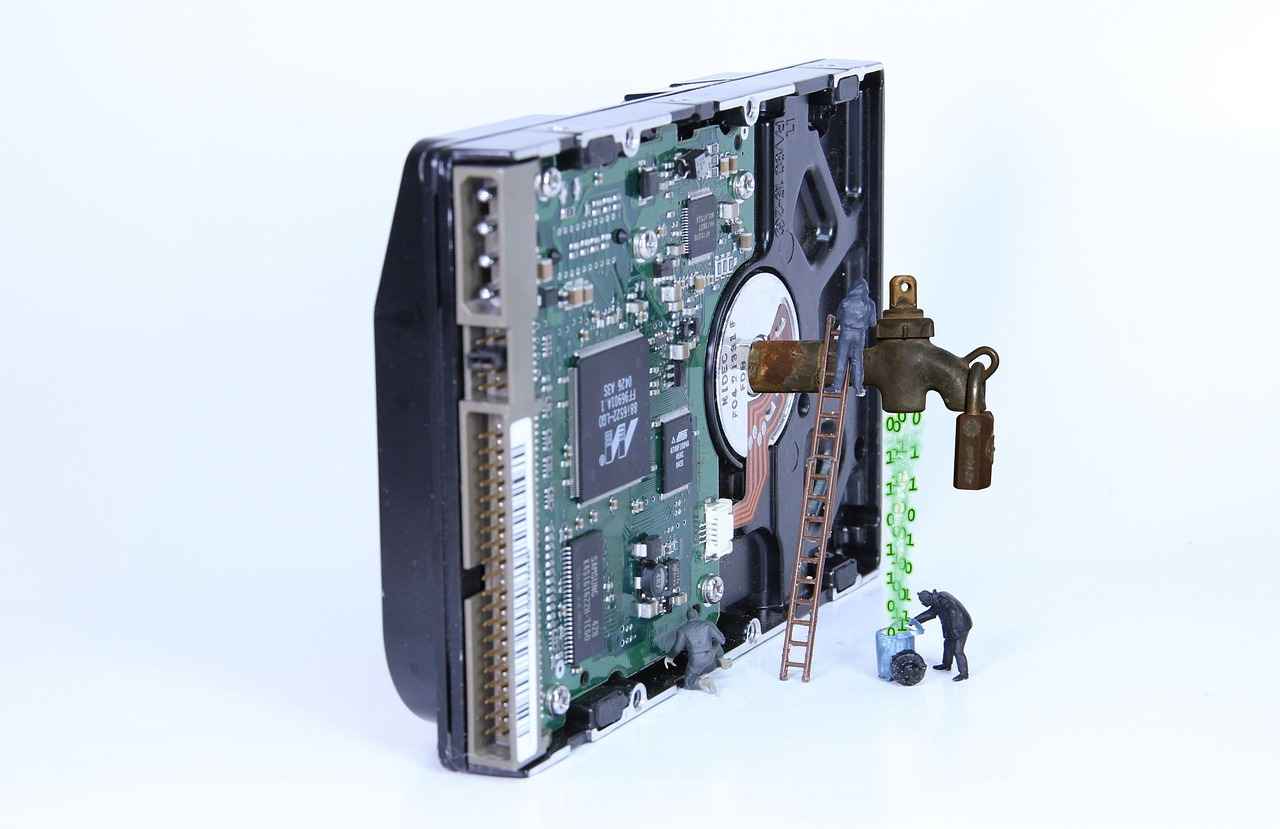
The Economic Impact of Immigration Policies
Immigration policies play a crucial role in shaping the economic landscape for Indian Americans in New York. These policies not only dictate the flow of individuals into the country but also influence their employment opportunities, entrepreneurial endeavors, and overall contributions to the economy. Understanding these dynamics is essential for grasping the broader implications of immigration legislation.
Job Opportunities for Indian Americans
One of the primary ways immigration policies affect Indian Americans is through job opportunities. Many Indian immigrants come to New York on work visas, such as the H-1B visa, which allows them to work in specialized fields like technology and healthcare. However, the strict regulations and quotas associated with these visas can limit access to employment for many qualified professionals. For instance, the high demand for H-1B visas often leads to intense competition, making it difficult for Indian applicants to secure positions.
Moreover, the fluctuating nature of immigration policies can create uncertainty in the job market. Changes in visa regulations can lead to a decrease in the number of Indian professionals entering the workforce, affecting industries reliant on skilled labor. This situation not only impacts job availability for Indian Americans but also has a ripple effect on the economy, as skilled workers contribute significantly to productivity and innovation.
Entrepreneurship Among Indian Americans
Indian Americans have a long-standing tradition of entrepreneurship, with many establishing successful businesses in New York. However, immigration policies can either facilitate or hinder this entrepreneurial spirit. For instance, the availability of startup visas and other supportive measures can empower Indian immigrants to launch their ventures. Conversely, stringent immigration laws may deter potential entrepreneurs from pursuing their dreams in the U.S.
Additionally, the ability to secure funding and resources is often tied to immigration status. Entrepreneurs who face challenges in obtaining permanent residency may find it difficult to access loans or investment opportunities, limiting their business growth. This not only affects individual entrepreneurs but also the broader economic ecosystem, as small businesses are vital for job creation and economic diversification.
Overall Economic Contributions
The cumulative effect of immigration policies on Indian Americans extends beyond individual job opportunities and entrepreneurship. Indian Americans contribute significantly to New York’s economy, with many holding positions in high-paying sectors and contributing to tax revenues. However, restrictive immigration policies can lead to a talent drain, where skilled professionals seek opportunities in more welcoming countries, thereby diminishing the economic contributions of the Indian American community.
Furthermore, the integration of Indian Americans into the local economy fosters cultural diversity and innovation. As they establish businesses and occupy key positions in various industries, they help shape New York’s economic landscape, making it more vibrant and competitive. Therefore, understanding the economic implications of immigration policies is essential for policymakers aiming to support the growth and integration of Indian Americans in New York.
Employment Opportunities for Indian Americans
The landscape of employment for Indian Americans, particularly in New York, is significantly influenced by immigration policies. These policies not only dictate the eligibility for work visas but also shape the overall job market in sectors like technology and healthcare, where many Indian Americans find their professional footing.
Impact of Immigration Policies on Employment
Immigration policies, especially those related to work visas such as the H-1B, play a pivotal role in determining the employment opportunities available to Indian Americans. The H-1B visa allows U.S. companies to employ foreign workers in specialty occupations, which often include technology and healthcare roles. However, the high demand and limited supply of these visas create a competitive environment, making it challenging for many qualified candidates to secure employment in their desired fields.
Tech Sector Opportunities
The technology sector is one of the primary fields where Indian Americans have made significant contributions. Companies in New York, ranging from startups to multinational corporations, rely heavily on skilled tech professionals. However, immigration policies that impose strict quotas and lengthy processing times can hinder the ability of Indian professionals to enter the workforce promptly. This delay can result in missed opportunities for both the employees and employers, as companies may struggle to fill critical positions in a timely manner.
Healthcare Sector Dynamics
Similarly, the healthcare sector presents a wealth of opportunities for Indian Americans, particularly in roles such as physicians, nurses, and healthcare administrators. The demand for healthcare professionals has surged, especially in the wake of the COVID-19 pandemic. However, immigration policies that affect medical licensing and residency placements can create barriers for Indian medical graduates seeking to practice in New York. These challenges can lead to underemployment, where qualified professionals are unable to utilize their skills effectively.
Entrepreneurial Ventures and Employment Creation
Many Indian Americans also turn to entrepreneurship as a means of creating employment opportunities for themselves and others. The ability to start and grow businesses is often influenced by immigration policies that either facilitate or complicate the process of obtaining necessary permits and visas. Supportive immigration policies can encourage innovation and economic growth, allowing Indian entrepreneurs to contribute significantly to New York’s economy.
Community Support and Networking
Networking and community support play essential roles in enhancing employment opportunities for Indian Americans. Various organizations and community groups provide resources, mentorship, and job placement assistance, helping individuals navigate the complexities of immigration policies. By fostering connections within the community, Indian Americans can better position themselves in the job market.
Conclusion
In summary, immigration policies have a profound impact on employment opportunities for Indian Americans in New York, particularly in the tech and healthcare sectors. By understanding these dynamics and advocating for more favorable policies, the community can work towards creating a more inclusive and accessible job market.
The Role of Indian Entrepreneurs in New York
Indian entrepreneurs have become a vital part of New York’s economic landscape, contributing significantly to job creation, innovation, and cultural diversity. This section delves into how immigration policies shape their ability to establish and expand businesses in one of the world’s most competitive markets.
Immigration policies play a crucial role in determining the ability of Indian entrepreneurs to start businesses in New York. The H-1B visa program, designed for skilled workers, is often a pathway for many Indian professionals to transition into entrepreneurship. However, the complexities and limitations of this visa can hinder their ability to launch ventures. For instance, the annual cap on H-1B visas creates significant competition, making it challenging for many to secure the necessary documentation to start their businesses.
Access to financial resources is another critical factor affecting Indian entrepreneurs. Many face difficulties in securing funding due to stringent lending criteria and a lack of established credit history in the U.S. Furthermore, immigration status can complicate access to loans and investment opportunities. Despite these hurdles, Indian entrepreneurs often leverage community networks and support systems to find funding and mentorship, enabling them to navigate the complexities of starting a business.
Indian entrepreneurs have made remarkable contributions across various sectors, particularly in technology, healthcare, and hospitality. Their innovative approaches and unique perspectives have led to the development of successful startups that not only create jobs but also enhance the cultural fabric of New York. For example, many Indian tech startups are at the forefront of advancements in artificial intelligence and software development, showcasing the entrepreneurial spirit and technical expertise of the Indian American community.
While many Indian entrepreneurs successfully establish their businesses, scaling them presents additional challenges. Immigration policies can limit their ability to hire skilled labor, particularly if potential employees face visa complications. Additionally, the lengthy green card process can deter talented individuals from joining their teams. This situation often leads to a talent shortage, making it difficult for businesses to grow and thrive in a competitive environment.
Despite the challenges posed by immigration policies, Indian entrepreneurs in New York benefit significantly from robust community support systems. Organizations such as the Indus Entrepreneurs (TiE) and the South Asian Chamber of Commerce provide valuable resources, networking opportunities, and mentorship programs. These organizations help aspiring entrepreneurs navigate the complexities of starting a business, offering guidance on legal requirements, funding options, and market strategies.
The future of Indian entrepreneurs in New York is closely tied to ongoing immigration reforms and policy changes. As discussions around immigration continue, there is hope for more favorable conditions that could facilitate business growth and expansion. Indian entrepreneurs are poised to play an even more significant role in New York’s economy, driving innovation and creating jobs while enriching the cultural diversity of the city.
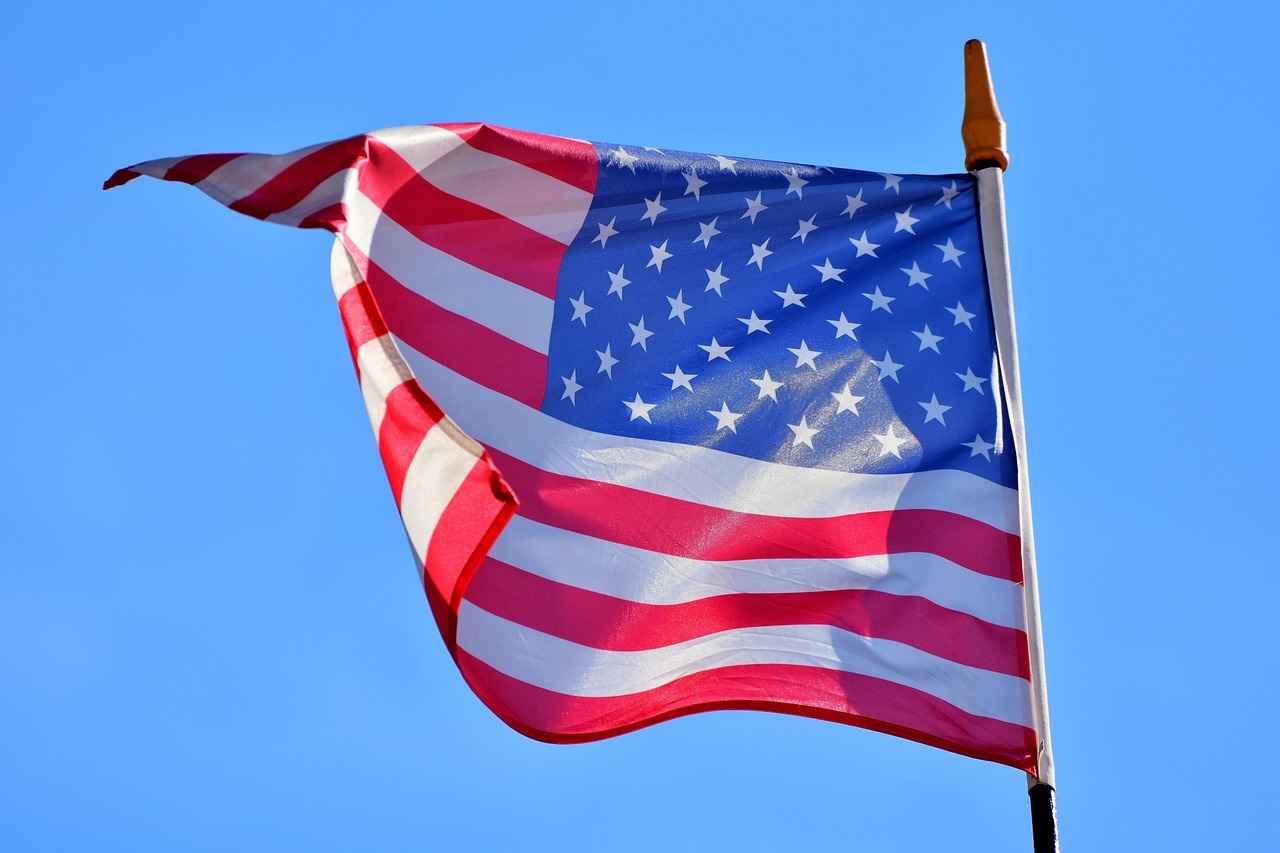
Social and Cultural Challenges Faced by Indian Americans
The Indian American community in New York is vibrant and diverse, but it faces unique social and cultural challenges exacerbated by immigration policies. These challenges influence not only individual identities but also the dynamics of the community as a whole. Understanding these factors is crucial for fostering a more inclusive society.
Impact of Immigration Policies on Community Dynamics
Immigration policies play a significant role in shaping the social fabric of Indian Americans in New York. Policies that limit family reunification or impose stringent visa requirements can lead to feelings of isolation among immigrants. The inability to bring family members to the U.S. can disrupt traditional family structures, which are often central to Indian culture.
Moreover, the uncertainty surrounding immigration status can create a sense of insecurity, making it difficult for individuals to fully engage in community activities. Many Indian Americans may feel hesitant to participate in social events or cultural celebrations due to fears of deportation or legal repercussions. This situation can lead to fragmentation within the community, as individuals may retreat into smaller, more secure groups.
Cultural Integration and Identity Formation
Cultural integration is a complex process for Indian Americans, influenced heavily by immigration policies. The challenge of maintaining one’s cultural heritage while adapting to a new environment can lead to an identity crisis for many. Younger generations, in particular, may struggle with balancing traditional values with the pressures of assimilation into American society.
The role of community organizations becomes vital in this context. These organizations often provide resources and support systems that help individuals navigate cultural challenges. They offer language classes, cultural events, and mentorship programs that facilitate integration while allowing individuals to celebrate their heritage. However, access to these resources can be uneven, often depending on immigration status and economic stability.
Community Support Systems and Their Importance
Community support systems are crucial for addressing the social and cultural challenges faced by Indian Americans. These networks often include religious institutions, cultural associations, and social clubs that provide a sense of belonging. They serve as safe spaces where individuals can share their experiences and seek advice on navigating the complexities of life in New York.
- Religious Institutions: Temples and other religious organizations often play a central role in community life, offering spiritual guidance and social services.
- Cultural Associations: These groups often organize events that celebrate Indian culture, providing opportunities for community members to connect and share their heritage.
- Social Clubs: Informal gatherings and clubs can foster friendships and support networks, helping individuals feel less isolated.
However, the effectiveness of these support systems can be hindered by immigration policies that create barriers to participation. For example, individuals with uncertain immigration status may avoid seeking help for fear of drawing attention to themselves. This can lead to a cycle of isolation and stress, further complicating their integration into society.
Conclusion
In summary, the social and cultural challenges faced by Indian Americans in New York are deeply intertwined with immigration policies. These policies not only affect individual experiences but also shape the overall dynamics of the community. By understanding these challenges, stakeholders can work towards creating a more inclusive environment that supports the cultural identity and social integration of Indian Americans.
Community Support Systems
Strong community support systems are essential for Indian Americans in New York as they navigate various challenges stemming from immigration policies, cultural integration, and economic opportunities. These networks not only provide assistance but also foster a sense of belonging and identity among community members. This section highlights the various support systems available to Indian Americans in New York, emphasizing their significance in overcoming challenges.
- Local Organizations: Numerous local organizations cater specifically to the Indian American community, offering resources such as legal assistance, job placement services, and cultural events. Organizations like the Indian American Center for Political Awareness and the South Asian Youth Action play pivotal roles in empowering individuals through education and advocacy.
- Networking Groups: Professional networking groups, such as the Indus Entrepreneurs (TiE), provide a platform for Indian American professionals to connect, share experiences, and explore business opportunities. These groups often host workshops and seminars that focus on skill development and entrepreneurship.
- Cultural Associations: Cultural associations, including the Indian Cultural Society and Gujarati Samaj, promote cultural heritage and traditions through festivals, celebrations, and educational programs. These events help in maintaining cultural ties and provide a space for community members to celebrate their identity.
- Religious Institutions: Places of worship, such as temples and gurdwaras, serve as community hubs where individuals can seek spiritual guidance and social support. They often organize community service initiatives, language classes, and cultural programs that strengthen community bonds.
In addition to these organizations, informal support networks among friends and family play a crucial role in providing emotional and practical assistance. Many Indian Americans rely on their social circles for advice on immigration matters, job searches, and settling into a new environment.
Furthermore, online platforms and social media groups have emerged as vital tools for connection and support. These digital communities allow Indian Americans to share information, seek advice, and offer support to one another, regardless of geographical boundaries. They serve as a valuable resource for newcomers who may feel isolated or overwhelmed by the challenges of adapting to life in New York.
Overall, the strength of community support systems significantly impacts the well-being of Indian Americans in New York. By providing resources, fostering connections, and promoting cultural pride, these networks help individuals navigate the complexities of their experiences, ultimately enhancing their quality of life and sense of belonging.
Cultural Integration and Identity
Cultural integration is a vital aspect of the lives of Indian Americans in New York, influencing their identity and sense of belonging. As they navigate the complexities of life in a new country, understanding the interplay between immigration policies and cultural assimilation becomes crucial. This section delves into how these factors shape the experiences of Indian Americans, fostering both challenges and opportunities for cultural integration.
Cultural integration refers to the process by which individuals from one culture adopt the practices, values, and beliefs of another culture. For Indian Americans in New York, this means balancing their rich cultural heritage with the diverse cultural landscape of the city. This integration is not merely about adopting new customs but involves a dynamic exchange where both cultures influence each other.
Immigration policies play a significant role in shaping the identity of Indian Americans. Policies that facilitate or hinder immigration can affect community cohesion and cultural practices. For instance, restrictive visa policies may lead to prolonged family separations, impacting cultural transmission across generations. Conversely, more inclusive policies can enhance community ties and encourage cultural celebrations, such as Diwali and Holi, which are essential for maintaining cultural identity.
- Language Barriers: Many Indian Americans face challenges in language proficiency, which can hinder effective communication and cultural exchange.
- Discrimination: Instances of racial or ethnic discrimination can create barriers to acceptance, making it harder for individuals to feel a sense of belonging.
- Generational Gaps: Younger generations may struggle to maintain cultural traditions while also adapting to American societal norms, leading to identity conflicts.
Despite the challenges, cultural integration offers numerous benefits for Indian Americans:
- Enhanced Community Bonds: Cultural festivals and community events foster connections among Indian Americans and with other cultural groups, promoting mutual respect and understanding.
- Identity Formation: The blending of Indian and American cultures allows individuals to create a unique identity that honors their heritage while embracing their new environment.
- Economic Opportunities: Cultural integration can lead to new business ventures and collaborations, as diverse perspectives contribute to innovation and creativity in various sectors.
Strong community networks are essential for facilitating cultural integration. Organizations such as the Indian American Community Foundation and various cultural associations provide resources, support, and platforms for Indian Americans to share their experiences and maintain their cultural practices. These organizations often host workshops, cultural events, and social gatherings that help individuals connect with their roots while integrating into the broader New York community.
In conclusion, cultural integration for Indian Americans in New York is a multifaceted process influenced by immigration policies and community dynamics. While challenges exist, the ongoing dialogue between cultures enriches the lives of individuals and strengthens community ties. Embracing a dual identity allows Indian Americans to navigate their unique experiences while contributing to the vibrant tapestry of New York’s cultural landscape.
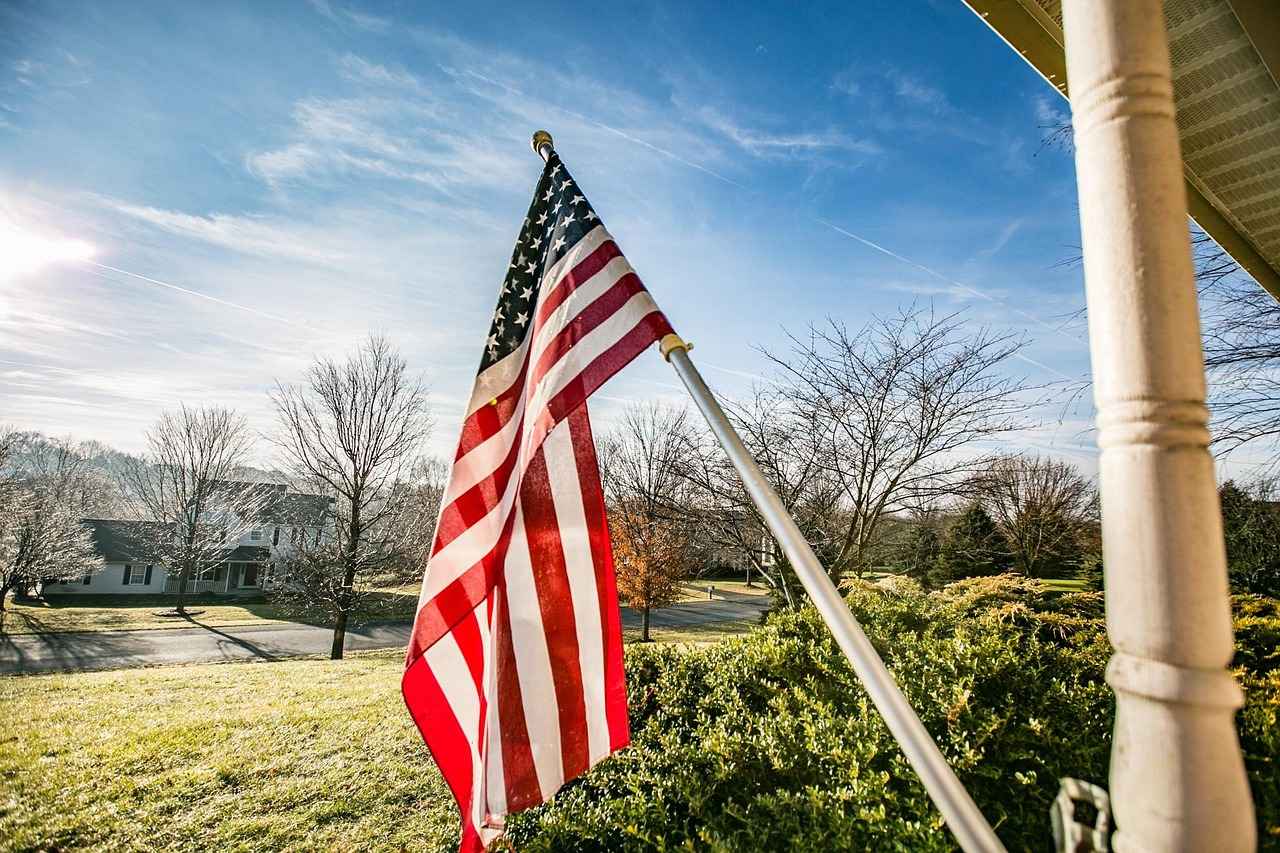
The Future of Indian Americans in New York
is a topic that invites considerable speculation, particularly in light of ongoing changes in immigration policies. As these policies evolve, they will undoubtedly have profound implications for the Indian American community in New York, which has long been a vibrant and integral part of the city’s cultural and economic landscape.
Looking ahead, the trajectory of Indian Americans in New York is likely to be shaped by several key factors:
- Changes in Immigration Legislation: Future legislative reforms could either facilitate or hinder the immigration process for Indian nationals. For instance, proposals to streamline visa applications or increase green card quotas could significantly benefit Indian professionals and families.
- Economic Opportunities: The demand for skilled labor in sectors like technology, healthcare, and engineering remains high. If immigration policies align with labor market needs, Indian Americans may find enhanced opportunities to contribute economically.
- Community Engagement: As policies evolve, the Indian American community is likely to become more proactive in advocating for their rights and interests. Increased civic engagement can lead to stronger representation and support in policy-making processes.
- Impact of Global Events: International relations and global crises can also influence immigration policies. Events such as trade agreements or geopolitical tensions may affect how Indian Americans are perceived and treated in the immigration landscape.
Potential Developments: Speculating on the future, one can envision a scenario where Indian Americans in New York benefit from more inclusive immigration policies. This could lead to a surge in new arrivals, enriching the community with diverse talents and perspectives. Additionally, if the government prioritizes STEM fields, Indian professionals could play a pivotal role in driving innovation and economic growth.
However, challenges remain. The potential for increased competition for jobs and resources could lead to tensions within the community and with other immigrant groups. Moreover, if immigration policies become more restrictive, it could result in a brain drain, where highly skilled individuals are unable to enter or remain in the U.S., ultimately stifling the community’s growth.
In conclusion, the future of Indian Americans in New York is intricately linked to the evolving immigration landscape. By staying informed and actively participating in civic engagement, the community can navigate these changes and continue to thrive in one of the most dynamic cities in the world.
Frequently Asked Questions
- What are the main immigration policies affecting Indian Americans in New York?
The immigration policies that significantly impact Indian Americans include visa regulations like the H-1B visa, green card processes, and recent legislative changes that may affect their ability to live and work in the U.S.
- What challenges do Indian professionals face in obtaining H-1B visas?
Indian professionals often encounter high competition for H-1B visas, lengthy processing times, and strict eligibility requirements, making the journey to secure these visas quite daunting.
- Are there alternatives to the H-1B visa for Indian immigrants?
Yes, there are several alternative visa options available, such as the O-1 visa for individuals with extraordinary ability, and the L-1 visa for intra-company transferees, which can provide pathways for Indian immigrants facing challenges with the H-1B visa.
- How do immigration policies impact the economic contributions of Indian Americans?
Immigration policies directly influence job opportunities, entrepreneurship, and overall economic contributions of Indian Americans, particularly in sectors like technology and healthcare, where their skills are highly valued.
- What role do community support systems play for Indian Americans?
Community support systems are crucial for Indian Americans as they navigate challenges related to immigration and cultural integration. These networks provide resources, guidance, and a sense of belonging to help them thrive in New York.

